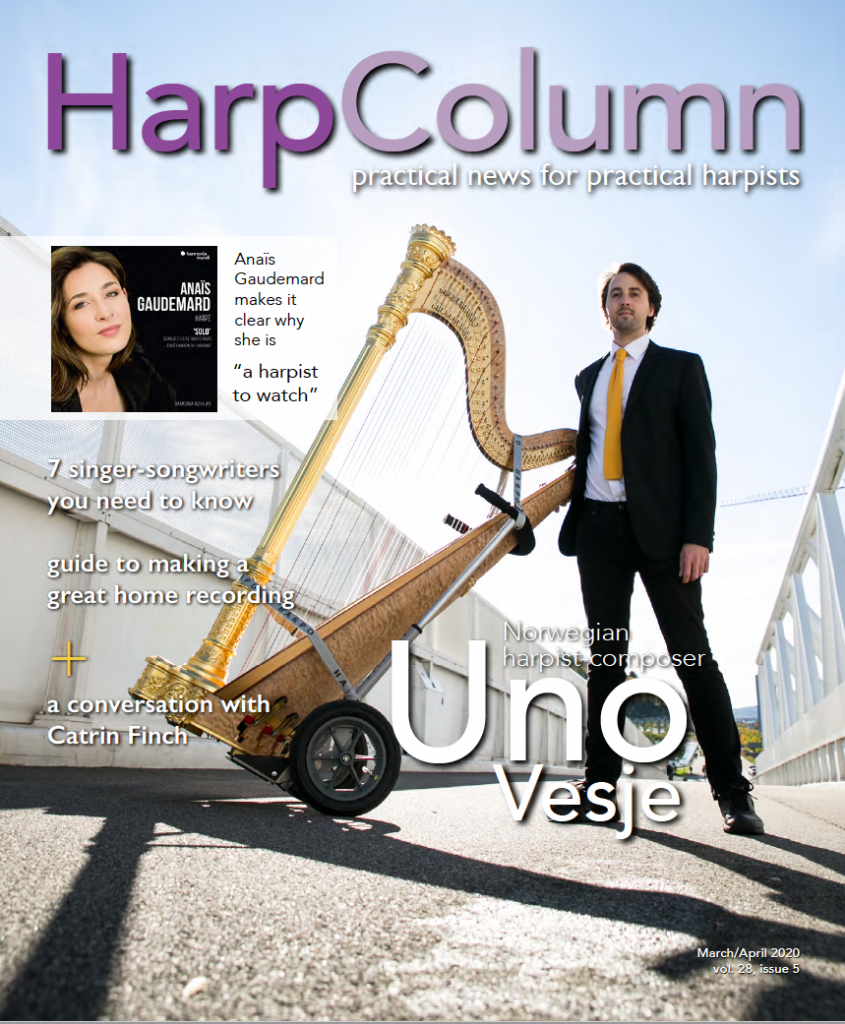Last week I sat down to work on a tricky lick in a new-to-me ensemble piece. I was feeling a little heat, not having left myself quite enough practice time before the rehearsal. I could blame that on any number of things, including my looming Harp Column deadline, but the truth is I have always been and always will be a procrastinator. I’ve even written about my procrastinating ways in a recent From the Editor column in the July/August 2019 issue of Harp Column.
So there I was, cramming this new part, trying to jam all these notes into my head and my hands as the clock ticked down. In that moment, what I needed most was something I didn’t feel I could afford to do: get up from the harp and take a break. Clear my head. Take a walk. Do some yoga. I had a hit a wall in my practicing, and my continued cramming was not only unproductive, it probably was counterproductive. But I didn’t feel I could afford enough time away from the harp to mentally scale the wall in front of me.
Every musician knows that taking extended time away from your instrument is risky.
As harpists, we have all faced this paradox in some form: the thing that is best for you in the long run costs something you can’t afford to give up in the moment. If you want to see a large-scale example of this predicament, read at Emily Granger’s Sounding Board article Practice Break. Granger’s freelance career had plateaued, and she says her playing felt stale. She knew she needed a break, but not just a walk-around-the-block kind of breather. She needed the kind of break that would reboot her musical life, but could also threaten its very existence. So Granger decided to take an epic five-month, 1,800 mile-walk across New Zealand on the Te Araroa trail.
Every musician knows that taking extended time away from your instrument is risky. What if you lose your calluses? What if your technique gets rusty? What if no one calls you to play when you get back? What if you never want to come back? How am I going to pay the bills?
Fear of the unknown can keep us from trying things with a potentially huge upside. After a busy holiday season, Grace Browning knew she needed a break, but she never dreamed a three-day yoga retreat could do so much to reinvigorate her musical life. In her latest installment of Lessons on the Job on pg. 14, Browning shares how taking care of herself away from the harp helps her mindset at the harp. Her ideas are practical and implementing just one into your routine could give you the mindset shift you’ve been looking for.
Sometimes it’s not fear of the unknown that holds us back, but simply the unknown. We all know, or at least have been told by our teachers, how important it is to record yourself to listen to your playing. Recording yourself is not only a critical tool for self evaluation, but it’s also valuable to know how to make a quality recording of yourself for everything from auditions to sound clips for clients to promotional videos for social media. But we are harpists, not recording engineers, and the world of mics and pickups and mixing boards can be intimidating.
Enter Rachel Lee Hall. You might know Hall from her popular Instagram account—
@rachelleehall has more than 50,000 followers—where she posts almost daily about her approach to practicing. With the help of her recording engineer brother, Hall figured out how to make quality recordings on a large scale from the comfort of her home. Most importantly, she didn’t break the bank doing it. If you haven’t rigged up a recording studio in your home because you didn’t know where to begin, then you can get a start by reading “Recording in Progress.”
So how did that half-year hiking hiatus work out for Granger? I won’t spoil her story, but I will tell you this: I’m definitely going to have my walking shoes handy the I need a practice break. •
Alison Reese is editor of Harp Column. She is a freelance performer and teacher in West Michigan. You can email her at areese@harpcolumn.com.







